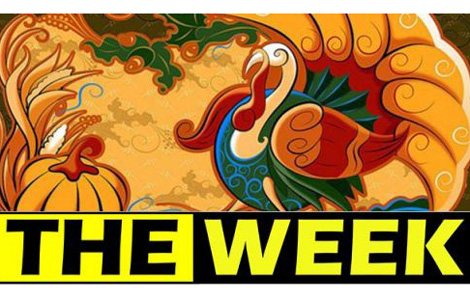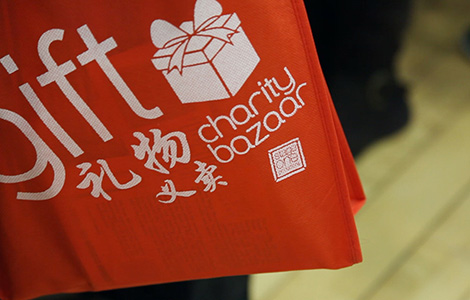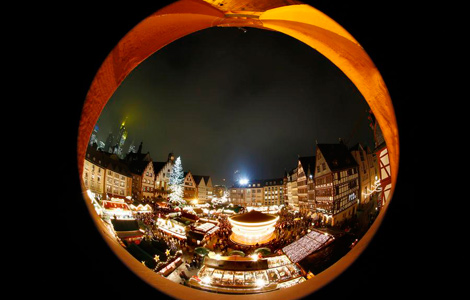Cities ink Silk Road economic belt agreement
Updated: 2013-11-30 14:37
(Xinhua)
|
|||||||||||
URUMQI -- Twenty-four cities from eight countries along the Silk Road have agreed on common efforts to establish a "Silk Road economic belt."
According to the Urumqi Consensus inked at the Silk Road Economic Belt Cities Cooperation and Development Forum, which concluded on Friday, signatories will work to set up the belt, a collaborative scheme aiming for greater cooperation, development and prosperity among the countries along the longstanding trade route.
The parties agreed in the consensus to enhance exchanges between governments of involved cities, initiate cooperative talks, establish friendly relations among each other, and learn from each other on urban construction and management. They also agreed to boost trade and economic exchanges and strengthen cultural and people-to-people exchanges.
Almaty of Kazakhstan, Bishkek of Kyrgyzstan, Meshed of Iran, and the Chinese cities of Urumqi, Xi'an and Lianyungang were among those which reached the agreement at the two-day forum held in Urumqi, capital of northwest China's Xinjiang Uygur Autonomous Region.
City or regional representatives from China, Turkey, Kazakhstan, Kyrgyzstan, Iran, Georgia, Tajikistan and Turkmenistan attended the event.
Apart from the consensus, representatives also signed five letters of intent on setting up liaison organs and establishing cooperation on traffic development, trade, technology, culture, education and health.
More than 150 officials, scholars and entrepreneurs from these countries discussed topics relating to policy exchange, road connections, trade talks and currency circulation.
"Through extensive communications here, we have found many creative thoughts on cooperation, and education and culture in particular may become new aspects for regional joint work," said Sophio Megrelidze, director of the foreign affairs office of Batumi in Georgia.
Developing an economic belt along the Silk Road has clearly become the common will for all countries of the region, she added.
The ancient Silk Road was a 7,000-km-long pathway created by camel-driving merchants who carried silk and porcelain to Western Europe and spices to the Far East 2,000 years ago. The road lost its significance as the age of sailing set in.
The land defined as the new Silk Road covers 18 Asian and European countries with a total area of 50 million square km and a population of 3 billion people. It also boasts rich energy, mining, tourism, cultural and agricultural resources.
Chinese President Xi Jinping proposed the idea of the economic belt during his visit to Central Asia in September, eyeing the cultural revival of the Silk Road, which historically links China with Central Asia and Europe, as a way of developing political and economic ties. It was later hailed by other countries involved.
Du Dewen, of the Chinese consulate in Almaty, said Kazakhstan had spent billions of US dollars in designing and building a road between west China and west Europe that is expected to become operational in 2015.
The 8,000-km-long highway, from China's Khorgos, an inland port in Xinjiang, to St. Petersburg of Russia through Kazakhstan, will become a new important trunk line connecting Asia and Europe.
The Silk Road economic belt, in combination with China's opening up of its western regions, will help economic restructuring and upgrading in central and western China, and become a new pole for the economic growth of the country, said Huo Jianguo, president of the Chinese Academy of International Trade and Economic Cooperation.
Related Stories
Tourism to be leading industry along Silk Road 2013-09-29 16:15
Xi'an forum focuses on Silk Road Economic Belt 2013-09-27 17:27
Xi suggests China, C.Asia build Silk Road economic belt 2013-09-07 14:02
Nations agreed to build New Silk Road 2013-09-03 07:16
Challenging times on 'high-speed Silk Road' 2013-07-12 07:38
Today's Top News
Premier calls for better links
Foreign jets identified in air zone
China to launch lunar probe Monday
Cities issue new housing policies
'Europe season' visits aim for mutual benefit
Japan urged to see safety of air zone
British to cultivate closer trade links
Air zone 'not aimed at civilian flights'
Hot Topics
Lunar probe , China growth forecasts, Emission rules get tougher, China seen through 'colored lens', International board,
Editor's Picks

|

|

|

|

|

|





